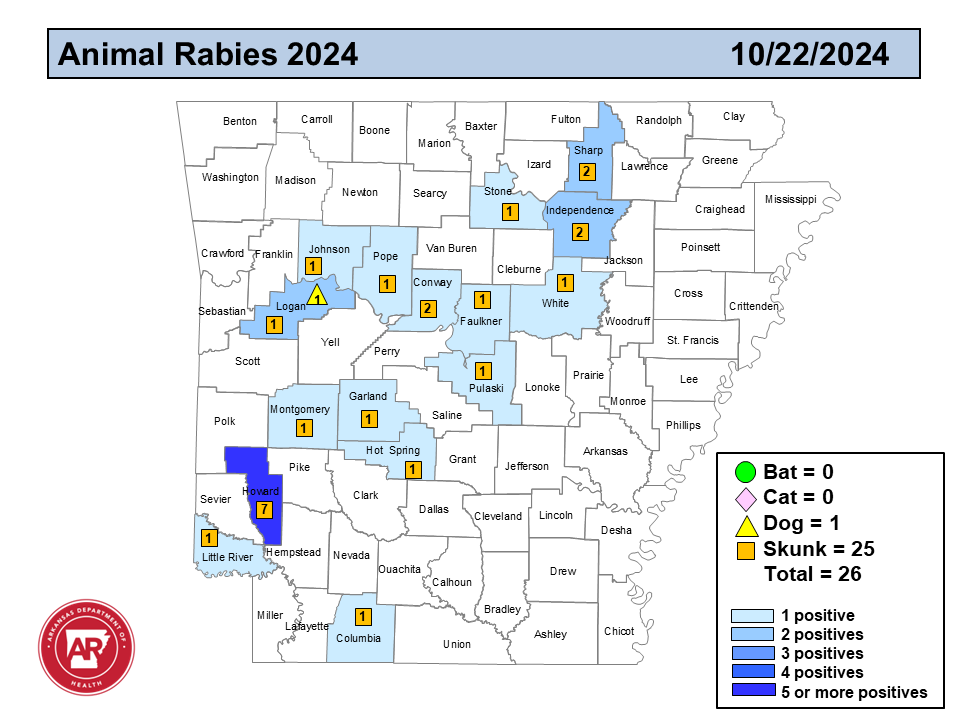Arkansas Animal Public Health Notices
The Arkansas Department of Health and the Arkansas Department of Agriculture closely monitor diseases that impact humans and animals. The Department of Health focuses on zoonotic diseases (those that can spread from animals to humans), while the Department of Agriculture manages infectious diseases affecting animals. This page provides alerts and updates on diseases that could impact the Arkansas animal agriculture industry.
Understanding Rabies
Rabies is a deadly viral disease that attacks the nervous system of warm-blooded animals. It spreads primarily through the bite of an infected animal. Rabies is almost always fatal unless treated immediately after exposure.
Animals Susceptible to Rabies
In Arkansas, rabies circulates among wild skunks and bats, but other animals can also contract it. These include:
- Domestic pets (e.g., dogs and cats)
- Agricultural animals (e.g., cows and horses)
- Humans exposed to rabid animals
Recognizing Rabies Symptoms
Symptoms of rabies include:
- Excessive salivation
- Abnormal movements, such as stumbling
- Aggressive or erratic behavior
If an animal shows these signs, only trained personnel with proper protective equipment should handle it. Animals found dead without an obvious cause should also be treated as potential rabies cases, and extreme caution should be used when disposing of them.
Learn more: Visit the Arkansas Department of Health for additional rabies information.
Below is the latest map of documented positive rabies cases.
Rabies Alerts in Arkansas

Vesicular Stomatitis Virus (VSV)
Vesicular Stomatitis Virus (VSV) is a contagious disease that affects all hooved animals, causing painful sores around the nose and mouth, which can interfere with feeding. In 2020, Benton County reported positive VSV cases in horses, and the affected animals were placed under quarantine.
Arkansas Quarantine Rules for VSV
When VSV is detected, quarantine protocols are enforced to control its spread. Here’s what to know:
- Counties bordering a quarantined county must issue a Certificate of Veterinary Inspection for horses leaving the area within 5 days of travel.
- This rule applies even to in-state travel and extends to Arkansas counties adjacent to quarantined areas in neighboring states like Oklahoma or Missouri.
- Once the quarantine is lifted, travel restrictions are removed.
Stay Informed
Visit the Arkansas Department of Agriculture website to get more information on Vesicular Stomatitis Virus in Arkansas.